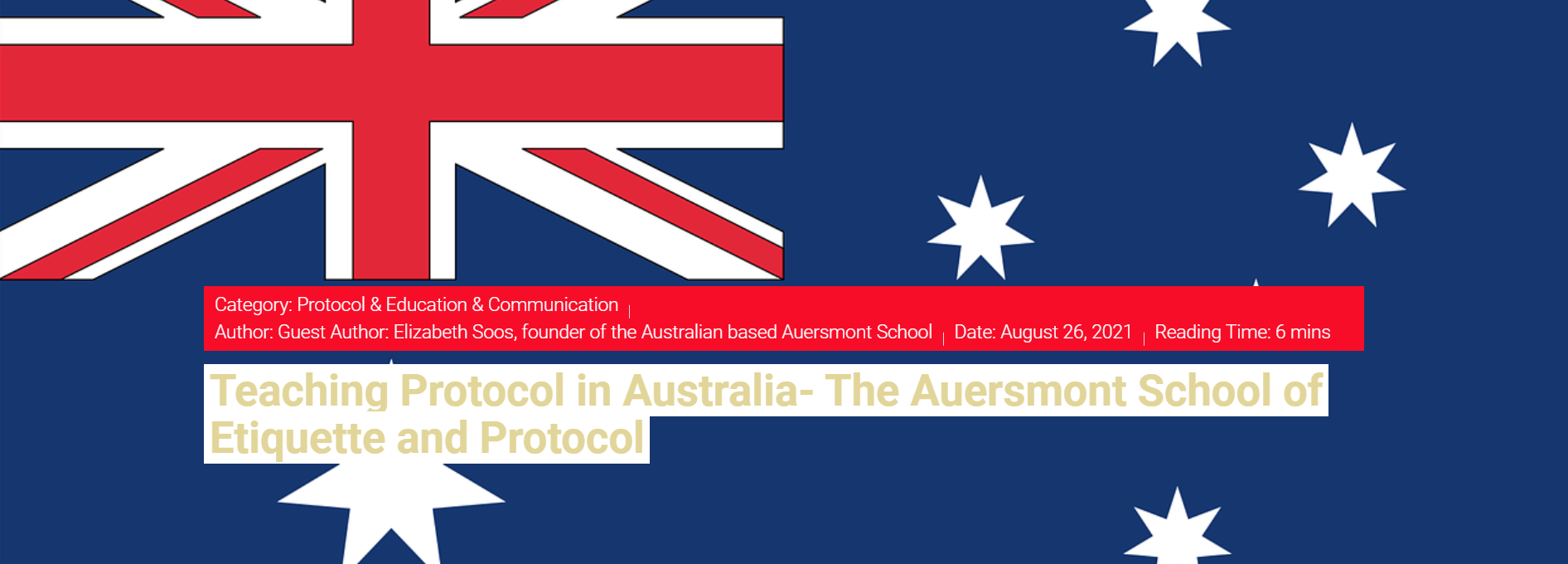|
Australians are viewed as a laid back and relaxed nation. Today, Australia has up to 220 different ethnicities coexisting together, culminating in a perception by others of not only being easy going but accepting and adventurous.
Colonisation of Australia by the British brought the class system into action however after World War I and II, Vietnam war, indigenous rights and multiculturalism, these ideals faded out. Today a commonly held belief in Australia is that everyone is equal and deserves equal rights and opportunities which is otherwise called egalitarianism. You’ll often hear that everyone deserves the right for a ‘fair go’. The question now is, if Australians are relaxed and ‘laid back’, do they USE or NEED etiquette or protocols? The answer is yes. Etiquette has changed in Australia over the years. It was introduced when English gentry settled here in the country’s colonial infancy. Essentially, etiquette, like new laws, relationships, and services which underwrote the changes to the country’s environment, economy, and society, has been re-written from the birth of Australia to our days today. During an ABC radio interview with Richard Aedy, Ita Buttrose described Australian society as having changed over time to become “an informal society”. However, the fundamentals of how we treat each other have not changed over the years. Buttrose went onto say that manners “are a sign of a civilised society” that “make the world a much nicer place to be.” There is an undercurrent of social norms and expectations in Australia, not obviously spelt out. For example, that
Generally, Australians will only be taught soft etiquette and protocols skills through school, and often indirectly. Later, further skills are picked up via work, friends, family, partner and while travelling. The majority will know, understand, and perform cultural traditions as a matter of respect and showing willingness to integrate and accept one another. Those who work for government, parliament, defence, the judiciary system, ambassadorial and indigenous programs, and international business will be specifically taught these subjects. For further reading, I recommend the following: Australian protocol:
This article can be found:
0 Comments
Leave a Reply. |
AuthorElizabeth Soos Archives
August 2025
Categories |
|
CONTACT US Submit Your Enquiry |


 RSS Feed
RSS Feed

